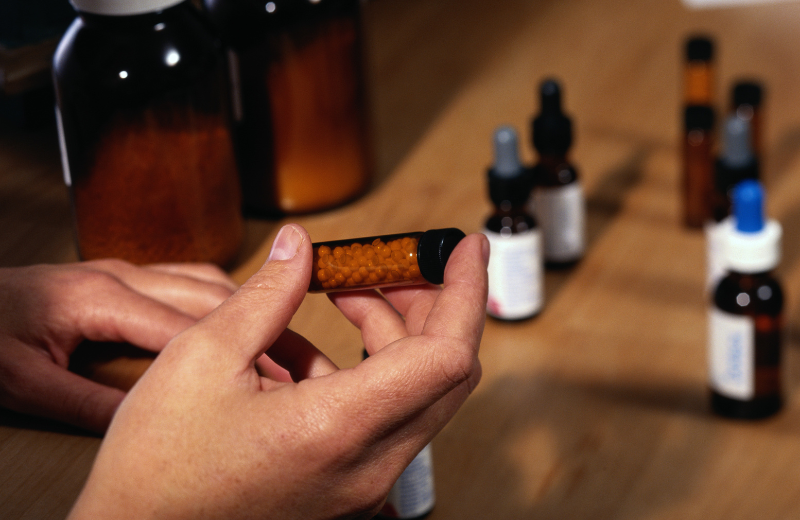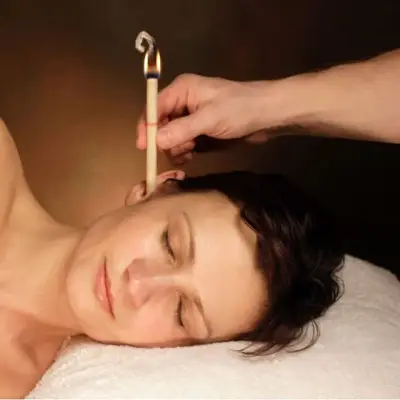Becoming a homeopath can be a rewarding path for those interested in natural health and holistic medicine. If you're someone who is passionate about helping others heal and are drawn to the principles of homeopathy, this guide explores the steps to becoming a homeopath, including the qualifications required, potential career paths, and where to find training courses.
Jump to:
Recommended for you!
Best SellersWhat is Homeopathy?
Homeopathy is a form of complementary medicine based on the principle of “like cures like.” This means that a substance that causes symptoms in a healthy person can, when diluted and administered in minute doses, treat similar symptoms in a sick person. Homeopathy uses natural substances, such as plants and minerals, that are highly diluted to create remedies aimed at stimulating the body’s natural healing response.
What is a Homeopath?
A homeopath is a practitioner who specialises in diagnosing and treating health conditions using homeopathic remedies. Homeopaths take a holistic approach, considering the entire person – body, mind, and emotions – when recommending treatments. They aim to treat the root cause of an ailment, not just the symptoms.
What Does a Homeopath Do?

Homeopaths work closely with clients to assess their overall health, identify underlying causes of health issues, and recommend homeopathic remedies tailored to the individual. Typical tasks of a homeopath include:
- Conducting detailed consultations to gather information about the patient’s physical, emotional, and mental health.
- Prescribing homeopathic remedies based on symptoms and overall health.
- Monitoring progress and adjusting remedies as necessary.
- Educating clients on lifestyle and dietary changes to support holistic healing.
Is Homeopathy Legit?
Homeopathy is a controversial subject. While many people swear by its effectiveness, scientific evidence supporting homeopathy is limited. Critics argue that the remedies are so diluted that they contain little to no active ingredient. However, proponents claim that homeopathy works by stimulating the body’s natural healing mechanisms.
Methods Used by Homeopaths

Homeopaths use a variety of methods to assess and treat patients, including:
- Materia Medica: A comprehensive guide to homeopathic remedies and their uses.
- Repertory Analysis: Identifying remedies based on a patient’s symptoms.
- Potentisation: Diluting and shaking substances to activate their healing properties.
- Constitutional Treatment: Considering the patient’s overall constitution when selecting remedies.
Steps to Becoming a Homeopath
If you’re ready to start your journey towards becoming a homeopath, these steps will guide you through the process. Here’s a quick overview of what you need to do:
- Research Homeopathic Courses Online: Explore different homeopathic classes online, ranging from certificates to degrees. Look for comprehensive programs, like the Homeopathy Diploma Course with Centre of Excellence, that cover homeopathic principles, remedies, and case-taking skills.
- Complete Homeopathic Training: Homeopathic training typically includes modules on philosophy, Materia Medica, anatomy, case-taking, and clinical practice. Ensure your course includes practical, supervised training.
- Gain Practical Experience: Look for opportunities to practise under supervision. Practical experience is key for developing diagnostic skills and building confidence in applying homeopathic principles.
- Obtain Certification and Register: After completing your training, consider registering with organisations like the Society of Homeopaths, the Alliance of Registered Homeopaths, or the Homeopathic Medical Association to enhance your credibility and gain access to ongoing support.
Safety and Regulations: Is Homeopathy Safe?
Homeopathy is generally considered safe when administered by a qualified practitioner. The remedies are highly diluted, reducing the risk of side effects. However, it’s essential to consult with a professional before starting any homeopathic treatment of your own, especially if you have underlying health conditions or are taking other medications.
Is Homeopathy Regulated in the UK?
Homeopathy is not statutorily regulated in the UK. However, practitioners can join voluntary regulatory bodies. These organisations set ethical guidelines and standards of practice for homeopaths.
Recommended for you!
Best SellersOther Common Questions About Becoming a Homeopath
How Much Do Homeopaths Earn?
Earnings for homeopaths can vary widely based on experience, location, and client base. In the UK, homeopaths typically charge between £30 to £100 per session. Those with extensive experience or a well-established practice may earn significantly more.
Can I Sell Homeopathic Medicine Online?
Once you’re a qualified homeopath, you can sell homeopathic remedies online. Ensure that you adhere to legal and regulatory guidelines for the sale of natural health products.
Can Homeopathy Regrow Hair?
Homeopathy is not a guaranteed treatment for hair regrowth, but some remedies claim to support hair health. Consult a qualified homeopath for personalised treatment plans.
Which Countries Are Best for Homeopathy?
India, Germany, and the UK are known for having well-established homeopathy programs and respected homeopathic institutions.
How do you Register as a Homeopath?
Once you have completed your training, you can apply for registration with a recognised homeopathic organisation. This can help you gain credibility, attract clients, and access continuing education opportunities.
Who Can Call Themselves a Homeopath?
In the UK, anyone can technically call themselves a homeopath, as the profession is not legally regulated. However, to be considered a credible and trustworthy practitioner, it is recommended to complete accredited training and register with a professional body.
What is the Difference Between a Homeopath and a Naturopath?
- Homeopaths focus solely on homeopathic remedies to treat conditions.
- Naturopaths use a broader range of natural therapies, including diet, herbs, and lifestyle counselling, alongside homeopathy.
Is Homeopathy in Demand?
Interest in holistic and alternative medicine has increased in recent years, and homeopathy is no exception. Many people seek homeopathic treatments for chronic conditions, allergies, and stress-related issues.
Do Homeopaths Make Money?
Homeopaths can earn a steady income, but it depends on their level of experience, location, and client base. In the UK, homeopaths typically charge between £30 to £100 per consultation. Those who build a successful practice or specialise in a particular area of homeopathy can earn significantly more.
Can Homeopathy Be a Hobby?
Many people study homeopathy as a hobby to treat themselves and their families. Online homeopathy courses and short classes provide an accessible way to learn about homeopathic remedies without pursuing a full career.
Study Homeopathy for £29
If you’re interested in exploring homeopathy further, Centre of Excellence offers a detailed Homeopathy Diploma Course. This online course is perfect for beginners, covering everything from homeopathic principles to clinical practice. For a limited time, you can enrol for just £29 and start your journey to becoming a qualified homeopath.













